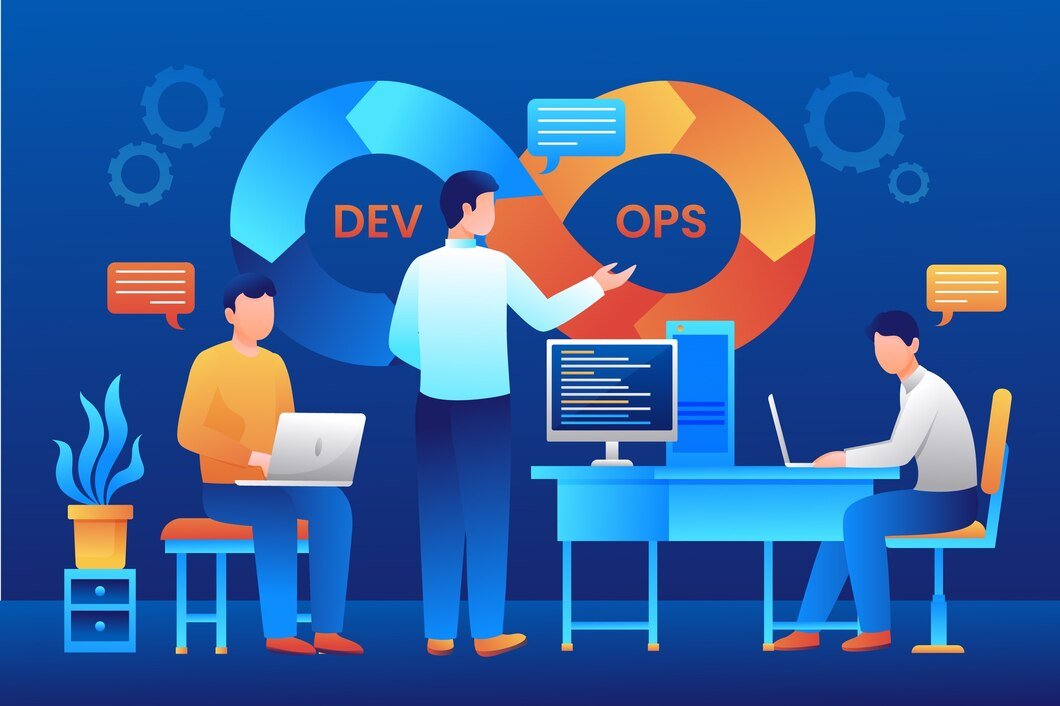Business
Understanding the Role of Low-Code Platforms in Enterprise Application Development

Introduction
In today’s rapidly evolving digital landscape, enterprises face increasing pressure to innovate faster while managing costs and resources efficiently. Traditional software development approaches often struggle to keep pace with these demands, leading many organizations to explore alternative solutions like low-code platforms.
A Platform for enterprise application development serves as a crucial foundation for businesses aiming to streamline operations and enhance efficiency. These platforms typically offer robust frameworks, tools, and environments tailored to meet the complex needs of large-scale applications. They provide a unified space where developers can design, build, deploy, and manage applications seamlessly across various stages of development. By integrating features like scalability, security, and integration capabilities, these platforms empower enterprises to innovate rapidly and adapt to changing market demands.
These platforms like WaveMaker’s Platform for Enterprise application development prioritize scalability and flexibility, enabling businesses to expand their applications as needed without compromising performance. They often incorporate advanced analytics and reporting functionalities, empowering enterprises to derive actionable insights from application data. Ultimately, a robust enterprise application development platform not only accelerates time-to-market for new applications but also enhances operational efficiency and supports sustainable business growth in today’s dynamic digital landscape.
What is Low-Code Application Development?
Low-code development empowers organizations to create applications with minimal hand-coding. It abstracts complex technical details into visual interfaces within integrated development environments (IDEs). This approach accelerates development by automating repetitive tasks and simplifying the creation of workflows, UI components, and integrations.
Benefits of Low-Code Platforms
- Enhanced Development Speed: By leveraging pre-built templates and drag-and-drop components, low-code platforms enable rapid prototyping and deployment. This agility reduces time-to-market significantly, as exemplified by Pertamina’s MVP creation in just 5 days using WaveMaker.
- Improved Collaboration: These platforms foster collaboration between business users and IT teams. They provide tools for tracking revisions, sharing feedback, and aligning project goals, thereby enhancing productivity and alignment across departments.
- Minimized Technical Debt: Low-code enforces coding standards and organizational best practices, reducing errors and maintenance overhead. This consistency ensures that applications are scalable, maintainable, and aligned with enterprise standards.
- Security and Governance: Leading low-code platforms integrate robust security measures and governance controls, ensuring compliance with regulatory standards and minimizing the risks associated with shadow IT.
Use Cases in Enterprise Software Development
Modern low-code platforms support a wide range of use cases within enterprise environments:
- Legacy Modernization: Transforming outdated systems into scalable, cloud-native applications.
- Internal Applications: Digitizing internal processes like HR workflows and data visualization to enhance operational efficiency.
- Custom Workflows: Tailoring applications to specific business needs that may not fit traditional SaaS solutions.
WaveMaker is a cutting-edge platform for enterprise application development tailored for professional developers, offering a low-code, composable experience. Specifically designed to meet the rigorous demands of enterprise-level engineering, WaveMaker equips developers with comprehensive tools for building, testing, and deploying high-quality products. Its intuitive design empowers teams to accelerate the software development lifecycle, ensuring they can deliver exceptional solutions efficiently and effectively.
Several approaches can be taken for Legacy application modernization for enterprises, including rehosting, refactoring, re-platforming, and rebuilding. The choice of approach depends on the complexity of the legacy system, business requirements, and budget constraints. For instance, rehosting (lift and shift) may be suitable for quick migrations, while refactoring involves more extensive code changes for improved functionality.
Cloud computing plays a pivotal role in legacy application modernization. Migrating legacy systems to the cloud offers numerous benefits, such as scalability, flexibility, and cost-efficiency. Cloud platforms provide modern infrastructure and tools that support seamless integration and continuous updates, ensuring that applications remain current and capable of meeting evolving business needs.
While low-code Platform for application development offer many benefits, SMEs may face challenges such as integration with legacy systems and ensuring data security. However, many low-code platforms provide tools and support to address these issues, making them a practical choice for SMEs
Conclusion
Low-code platforms are revolutionizing enterprise application development by offering speed, flexibility, and scalability. As organizations continue to prioritize digital transformation, adopting these platforms can accelerate innovation, improve collaboration, and drive business growth.
-

 Tech1 year ago
Tech1 year agoHow to Use a Temporary Number for WhatsApp
-

 Business2 years ago
Business2 years agoSepatuindonesia.com | Best Online Store in Indonesia
-

 Social Media2 years ago
Social Media2 years agoThe Best Methods to Download TikTok Videos Using SnapTik
-

 Technology2 years ago
Technology2 years agoTop High Paying Affiliate Programs
-

 Tech12 months ago
Tech12 months agoUnderstanding thejavasea.me Leaks Aio-TLP: A Comprehensive Guide
-

 FOOD1 year ago
FOOD1 year agoHow to Identify Pure Desi Ghee? Ultimate Guidelines for Purchasing Authentic Ghee Online
-

 Instagram3 years ago
Instagram3 years agoFree Instagram Auto Follower Without Login
-

 Instagram3 years ago
Instagram3 years agoFree Instagram Follower Without Login





















